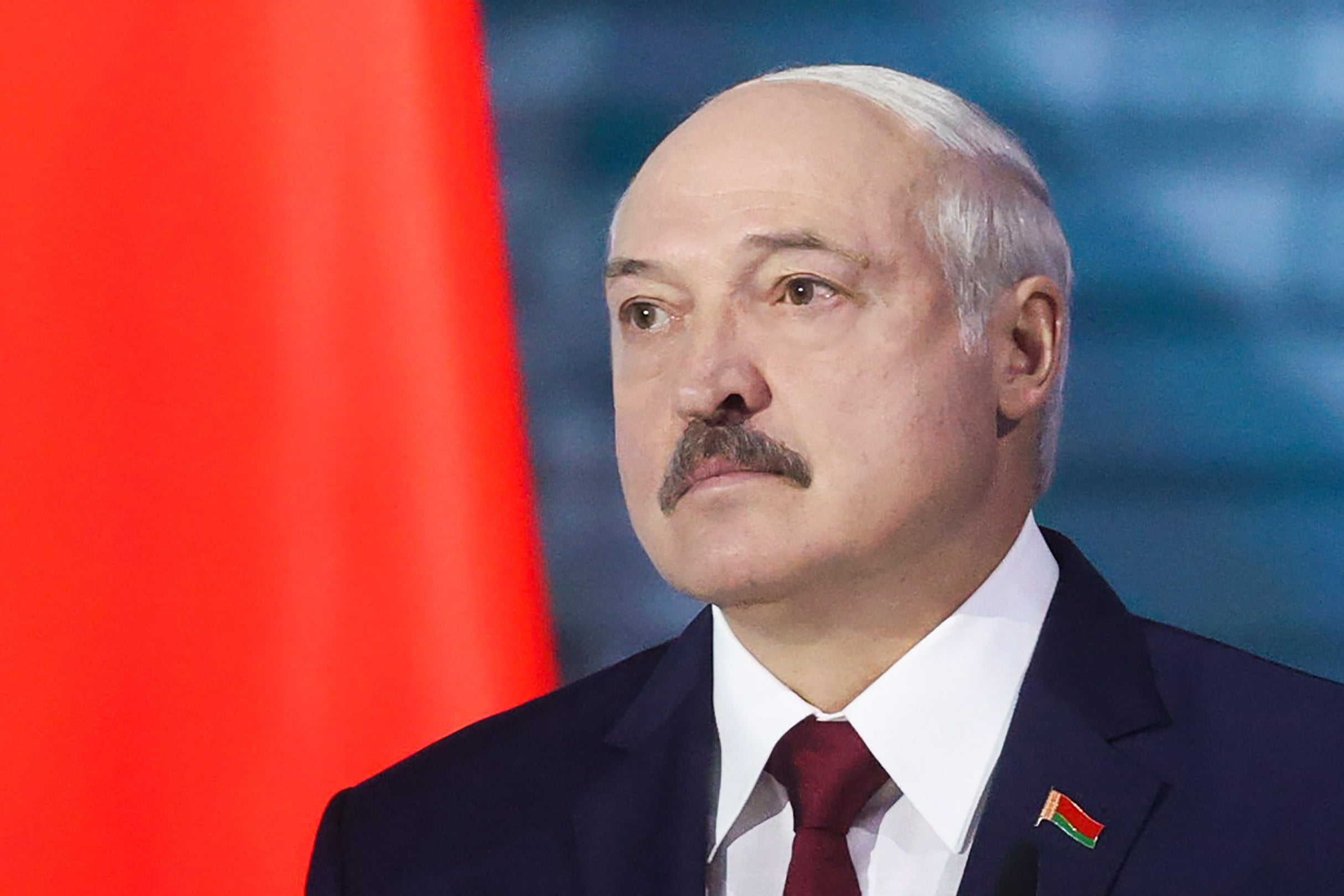Unidentified forces seeking ‘massacre in Minsk’, claims Belarus’s under-fire president
Europe’s ‘last dictator’ uses major pre-election speech to direct fire at Russia and the opposition, explains Oliver Carroll


In his last major speech before Sunday’s presidential elections, Alexander Lukashenko made an emotional pitch to Belarusians, asking them to trust his “stable” hand in a world that was “sleepwalking into the abyss” .
“Our planet is shaking, with sparks and fire everywhere,” the five-term president said during his annual state-of-the-nation address on Tuesday, coinciding with the first day of voting.
Belarus remained an “island of calm” because of the “stable and strong hierarchy” holding it together, he said. But all that was being threatened like never before – with unidentified, well-funded forces seeking a “massacre” on the streets of Minsk.
The sombre faces of the 2,500 dignitaries seemed to reflect the seriousness of Mr Lukashenko’s situation ahead of the 9 August vote.
Remarkably for a man who likes to stay in control on every aspect of Belarusian life, the self-styled “dictator” is vulnerable on multiple fronts.
He has been criticised for his controversial handling of the Covid-19 pandemic. Economically, the country is in dire straits, with Moscow reducing oil subsidies. For the first time in decades, the opposition has also united around a likeable candidate and a simple message of new, free elections.
Svetlana Tikhanovskaya, until a few weeks ago a housewife, has been embarrassing Mr Lukashenko with huge rallies once considered incompatible with the police state. Over the weekend, 20,000 people turned up in Brest (population 355,000), the largest protest the small, western town has seen.
Last week, Minsk (population 2 million) saw at least 60,000 attend, which was another record-breaking crowd for post-Soviet times.
Ms Tikhanovskaya entered the race after her husband Sergei was jailed and disqualified from running.
The president’s address on Tuesday was an attempt to wrestle back momentum from his unexpected challenger.
The optics of his show could not have been more different, with the rows and rows of staid Belarusian nomenclature at Minsk’s Palace of the Republic contrasting obviously with the energetic crowds attending Ms Tikhanovsky’s events.
During an hour and a half address, Mr Lukashenko admitted he had his faults and was “no angel”. He had “good sides” and he had his “bad sides”. But the opposition campaign was an attempt to “annihilate” him, he suggested – and by that logic, destroy Belarus.
The speech covered familiar themes: the threats of the opposition; new promises to raise wages; frustration over the relationship with Russia. Much of the most emotional rhetoric was directed at Moscow – whether directly, or obliquely, by referring to unidentified “puppet masters”. Russia had substituted “brotherly” relations for a “partnership”, he said.
Mr Lukashenko frequently connected his rivals’s challenge with the hand of the Kremlin – an electoral tactic that is likely to be pressed hard in the days ahead.

On Thursday, Minsk claimed to have foiled a “Russian terror plot”, arresting 33 men it said worked for Wagner, the Kremlin-linked private military company seen in Ukraine, Syria and elsewhere. According to Mr Lukashenko, the men had ”already owned up to everything”. It was time Russia “stopped lying” and “came clean” about what the men were doing.
As has been widely reported, several aspects of the story do not make sense and it appears more likely that the men were using Belarus as a staging point for some onward journey. Even less plausible are Mr Lukashenko’s assertions that the plot was being run on the orders of Sergei Tikhanovsky and Mikola Statkevich, two opposition politicians currently in jail.
Russia has denied being behind the plot and has made a formal complaint about the arrests. But the protests have not been particularly forceful – a sign, perhaps, that the Kremlin understands the drama will not outlive the election cycle. Many analysts assume the Kremlin is interested in Mr Lukashenko remaining in power, albeit weakened and more amenable after an “ugly” victory.
Mr Lukashenko’s total control of election bodies will almost certainly give him an overwhelming share of the vote on Sunday. But the challenge of his political survival will only begin then – and will is likely to depend on whether the political old-timer can find a way of gaining support from the country’s western-oriented youth.
He obviously had this constituency in his thoughts throughout the speech today, praising them as the “bright future” of the country – while also complaining about their “zombification on iPhones”.
It is less clear whether Belarus’s youth will be moved by his Soviet-style offer to them: making them the “centrepiece” of the country’s next five-year plan.
Join our commenting forum
Join thought-provoking conversations, follow other Independent readers and see their replies
Comments